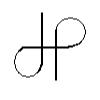Search the Community
Showing results for tags 'Text'.
Found 3 results
-
I'm trying to track down a story, and I was wondering if anyone here could help in my search. It started with me watching the following YouTube video: https://www.youtube.com/watch?v=CdI3Uoa6BOU I don't know anything really about the speaker or his background, this is the first video I've seen by him. But near the end of his talk, he briefly mentions a story about an Emperor's son, named something like "Jen Wu Da Dei" (no idea if my attempt to spell that was anything near correct), who went into the Wudang mountains to cultivate and encountered five dragons who helped him traverse seven stages of consciousness. The speaker says he will not go into the details of that story in this talk, however, so he provides no more details except those. It's probably a long shot, but does anyone know where I can find this full story?? My attempts at Google-fu have thusfar been fruitless. From the vague description I've gotten so far, it seems to have thematic similarities to ʿAṭṭār's Conference of the Birds, and so I'm interested in finding this story to do a deeper analysis of it. Also, as an aside, is there a better subforum for questions like this??
-
Just for the record, my literary Chinese is non existent. I can read the dao de jing and understand 60% of the characters in simplified Chinese, so I can not make direct textual citations of that book at present time. That having been said, One of the major issues in understanding Daoism, its philosophy, spirituality, and practice, lies in the difficulty of contextualizing its original meaning in Chinese correctly. Chinese is not only very difficult for foreigners to understand, it is also really quite hard for Chinese to understand deeply. I recently had a conversation with my tea teacher (who I assure you is an absolute genius) that went something like this: teacher He: yes of course we can read the dao de jing together, but you need to know that one's interpretation of it is based on the stages of one's life. When I was in my early twenties reading this book, it was very different than reading it now. Looking back, many of the things which made sense then, I view in a very different way now. Me: oh yeah... I know all about that.... Did that mountain just stand up and walk away? Nope, its still there... ok. But then my Daoism teacher for many years has told me: you need to know that the entire dao de jing is written in code and that if you don't study with a qualified teacher, you can only understand it at a philosophical level and not at the level of practice. It can only benefit your thinking and not directly benefit your person or spirit. The majority of Chinese people who are willing to look at the daodejing seriously (that being quite few, as most view it as spiritually having its head in the clouds and daoists being severely weird) tend to have the same opinion as my tea teacher. Having said that, there are books such as daodejing chanwei (if anyone has a copy, please tell me how you got it!) which explain meditation through the verses of the daodejing. A good example is "real men breathe through their heals," which according to this book means that people who really practice meditation seriously will emphasize the practice of the yinqiao meridian in the legs. I used these several points to illustrate that Daoism, its interpretation, and how people practice is a continuum with many different opinions and ideas centred around a relatively humble piece of work. So when we do things like reading the daodejing, even if we are quite fluent in Chinese, or have people to translate it for us, may miss a considerable amount of the information contained within. Actually may is an understatement, we almost certainly will miss the point. I think that is where practice comes in- because through practice we can realize for ourselves what laozi is getting at in his book- however, we also have to make sure that the people who are presenting our practice to us are verifiable and have credentials which can be trusted. This means that we really must be good at picking our teachers. unfortunately, there are not too many good teachers of daoism in any part of the world right now, so if you really want it, you may have to look for a very long time, at a very serious depth. On the other hand, there are many people in other traditions whose practice leads to the same goal as daoism. So we may be able to approach the daodejing indirectly through vipassana, or kundalini etc... But if you really want to learn the contents of daoism, you should start by learning Chinese, meeting Chinese people who know daoism deeply and correctly, and working hard. there are already many people who have started on this path, so we can also sometimes be lucky enough to meet them and get their advice. now I'm going to amble off to bed. good night.
- 1 reply
-
- 1
-

-
- dao de jing
- meditation
-
(and 2 more)
Tagged with:
-
The Master of the Hidden Storehouse is a very easily comprehended work attributed to Keng Sang-tzu, a disciple of the old scholar, and is a classical treatment of the taoist philosophy with emphasis on leadership and governance. I found this little gem buried in the back half of a book called Thunder in the sky, an english language translation by Thomas Cleary which includes two texts: Master of Demon Valley, and Master of the Hidden Storehouse. The book is published by Shambhala, isbn# 1-57062-660-x (in case anyone gets bored with the pace that I lay it out on this thread and wants to get a copy for themselves). After reading this book, I must conclude that it is essential reading for anyone who wishes to be effective in a leadership role from the point of presiding over a nation, a state, a province, a villiage, a neighborhood, a house, or themselves. The lack of understanding of the way when it comes to governance in our world's leaders is shocking, but not unexpected, as the persons most likely to seek public office are, by their natures, the ones least likely to be competant to fill these roles. By way of overview, there are nine segments in this text: Preserving the way intact, Applying the way, The way of government, The way of leadership, The way of administrators, The way of the wise, The way of education, The way of agriculture, and The way of war. Get your ink and brushes ready: you will want a copy of this text preserved for future generations.
- 2 replies
-
- 5
-

-
- Tao
- Leadership
-
(and 6 more)
Tagged with:



